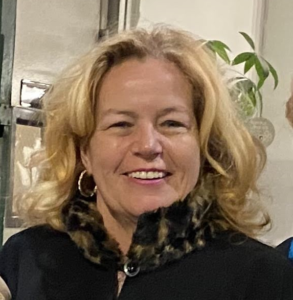By Ellen Russell Beatty
Ponder This

Ellen Russell Beatty
I was honored to provide keynote remarks to the graduating class of the University of Bridgeport receiving the bachelor of science degree in nursing in 2022. It provided me with an opportunity to reflect on the nursing profession in the context of current national and world events.
I had aspirations to become a nurse at an early age, and a wise family elder encouraged with these words of counsel: “Good choice…there will always be a need for nurses, since there will always be war, infirmity, old age, birth, disease, pain, suffering and death.”
What a statement to make to a young person desiring to enter the nursing profession.
These words have held over many years of practice in a variety of institutional and community settings, and I often return to reexamine and reflect on their meaning. Nurses have the privilege of practicing within the human condition, including joy, pain and suffering.
There is profound joy in witnessing the birth of a new baby or the exquisite intimacy of being present during death. Nurses have the privilege and legitimate power of touch that can be a transformative and intimate connection with those whom we serve.
However, it is this same beautiful privilege of helping others during pain and suffering that also creates a paradox. The human body sweats, oozes, bleeds, groans, writhes and yes, even decays in the process of life’s journey. This special ability to assist with these raw human experiences may make it easier for the nursing profession to be taken for granted. There is something quite earthy about nursing, something inherent in the human condition that repels others and perhaps causes dismissal of the importance of our work.
It is a time of celebration when you embark on your career, yet many challenges lie ahead. These are stressful times for people, the world and for the profession. The practice of nursing during pandemic times is difficult at best. Nurses, physicians and health care workers feel overwhelmed, underappreciated and under siege.
The American Nurses Association code of ethics states that “Nursing is responsible for articulating nursing values, for maintaining integrity of the profession and its practice, and for shaping social policy.” Nurses hold a sacred trust and legal accountability for individual clients in their care. But the responsibility extends beyond individual, personal interactions. Professional nurses have an obligation to their clients, the profession and to the health of the community. Only an autonomous profession can be accountable to protect the health, safety and rights of the patient by developing good policies to affect the delivery of quality care.
Florence Nightingale held the vision of nursing as a force to improve society. Corporations – even nonprofits – operate within a for-profit industry and must not be allowed to view nursing through the prism of health care workers being interchangeable and replaceable. Salary and professional working conditions must acknowledge the education, credentials and experience of providers so they can more fully impact the welfare of their patients.
Once again language matters, especially in the workplace. We do not refer to lawyers as court workers; indeed, much essential legal practice takes place outside of the physical judicial system. The terms “lawyer” and “attorney” reflect a profession that entails education, credentials and the expertise of the individual practitioners.
Similarly, teachers are not school workers and must not be considered interchangeable with other categories of essential workers. Teachers are employed for their education, credentials and licensure rather than the necessary tasks that are also performed in the course of their practice.
This is also true for the nursing profession. It is incorrect and diminishing to view the practice of nursing by the tasks that are performed. They are nurses, not hospital workers.
The intimacy involved in nursing lends itself to the risk of taking the professional service for granted. According to the oath nurses take, they do not have the right to hold the profession back. Nurses cannot be complicit in policies or actions that impede individual or collective obligation to care for others. If nursing accepts a blurring of boundaries or a diminution in credentialling, this diminishes both the power and obligation to help people; the ill, infirm, injured, aged and all those so in need of nursing.
Nurses must ask themselves: Is there something in the system that seems frozen yet prevents a fuller contribution? How can we help to change it? What are nurses doing that expends time, energy or resources yet keeps them from doing that which only professional nursing can provide? These are acts of omission rather than commission. What is not being accomplished for patients required by the professional license and oath of practice? The constraints of agency rules, policies, norms and revenues needs can interfere with good policy and practice.
Dr. Ellen Russell Beatty served seven years as Associate Vice President of Academic Affairs at Southern Connecticut State University, and also served as interim Academic Vice president, Dean of Health & Human Services and Director of Faculty Development. In addition to the broad perspective and a multitude of skills required of high-level administrators, her areas of special expertise lie in strategic planning, accreditation, assessment and planning and budgetary allocation.